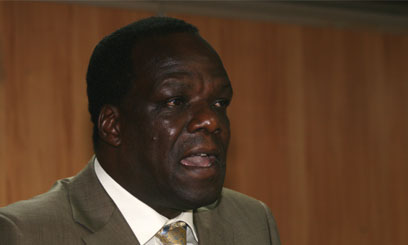NAIROBI, Kenya, Jul 18 – Kenya failed to make specific commitments on the use of family planning during a London summit that was attended by major international donors and 69 countries.
African Institute for Development Policy Executive Director Eliyas Zulu who attended the meeting told Capital FM News that majority of the other countries present made specific commitments to increase their financial budgets for family planning and or make family planning national priority.
Planning Minister Wycliffe Oparanya represented the country at the summit.
“There were no specific commitments that Kenya made. Kenya has made progress but there are big service gaps with about 25 percent of married women having unmet need for family planning,” Zulu said.
“But also I think the most critical thing that the summit emphasised is that governments need to make sure that there is equitable access to family planning and that’s one of the big problems we have in Kenya,” he added.
He noted that although globally Kenya looked like it was making progress on provision of family planning; the poor women in some geographical regions continued to lack access.
“Even if women in Kenya now start having two children next year or this year the Kenyan population will still grow for the next 60 to 70 years because we already have enough young people and the Kenyan population is already guaranteed to reach 100 million,” he stated adding: “So those who want Kenya to have a big population, that is guaranteed, you don’t have to expose women to become child bearing machines for you to have a big population.”
He said it was important for the country to accelerate action, funding and the focus on meeting the needs of the poorest and the underserved populations and stop relying too much on donors.
He attributed the over reliance on donors to history where when family planning was introduced in the 1970s, it was mostly funded by donors and a lot of African leaders were uncomfortable promoting family planning because they thought it against African culture.
“This is a disease in Africa that we need to address because if donors look the other way or their priorities change, then we expose women,” he said.
But even if Kenya failed to make any tangible commitment, it would be among 69 countries that are set to benefit from a $4.6 billion funding for family planning, a commitment made by developed countries at the family planning meeting.
However, it was not clear how much each country would get from the funds that are aimed to help 120 million new users of family planning to have access over the next eight years.
“It may not fill the entire gap because it is estimated that about 220 million women in the developing countries have unmet need for family planning so you can see that this number is actually going to meet about half of that unmet need, but it would still go a long way in helping women who are unable to access family planning to be able to do so,” Zulu said.
He described the London summit as a game changing meeting where the international community made a decision to stop low contraceptive access.
“What the summit said is that let’s enable women who need to use family planning access it. It is not through coercive means, it’s by giving women a choice. If a woman wants to have six children or whatever number, the government shouldn’t come and say have two children, women should choose. But once a woman chooses to have one or two children, the government should help them have the means to do so,” he said.










































